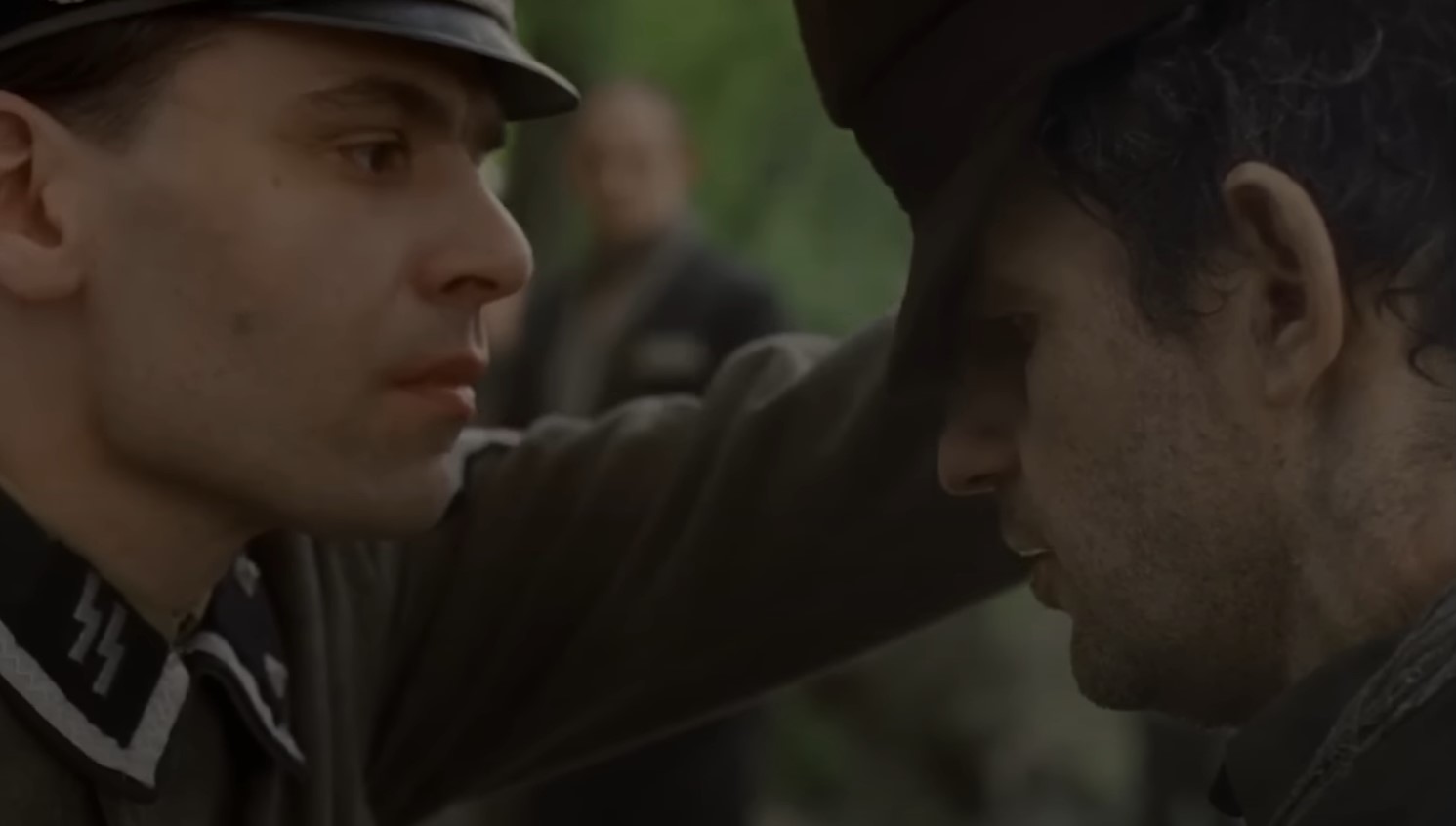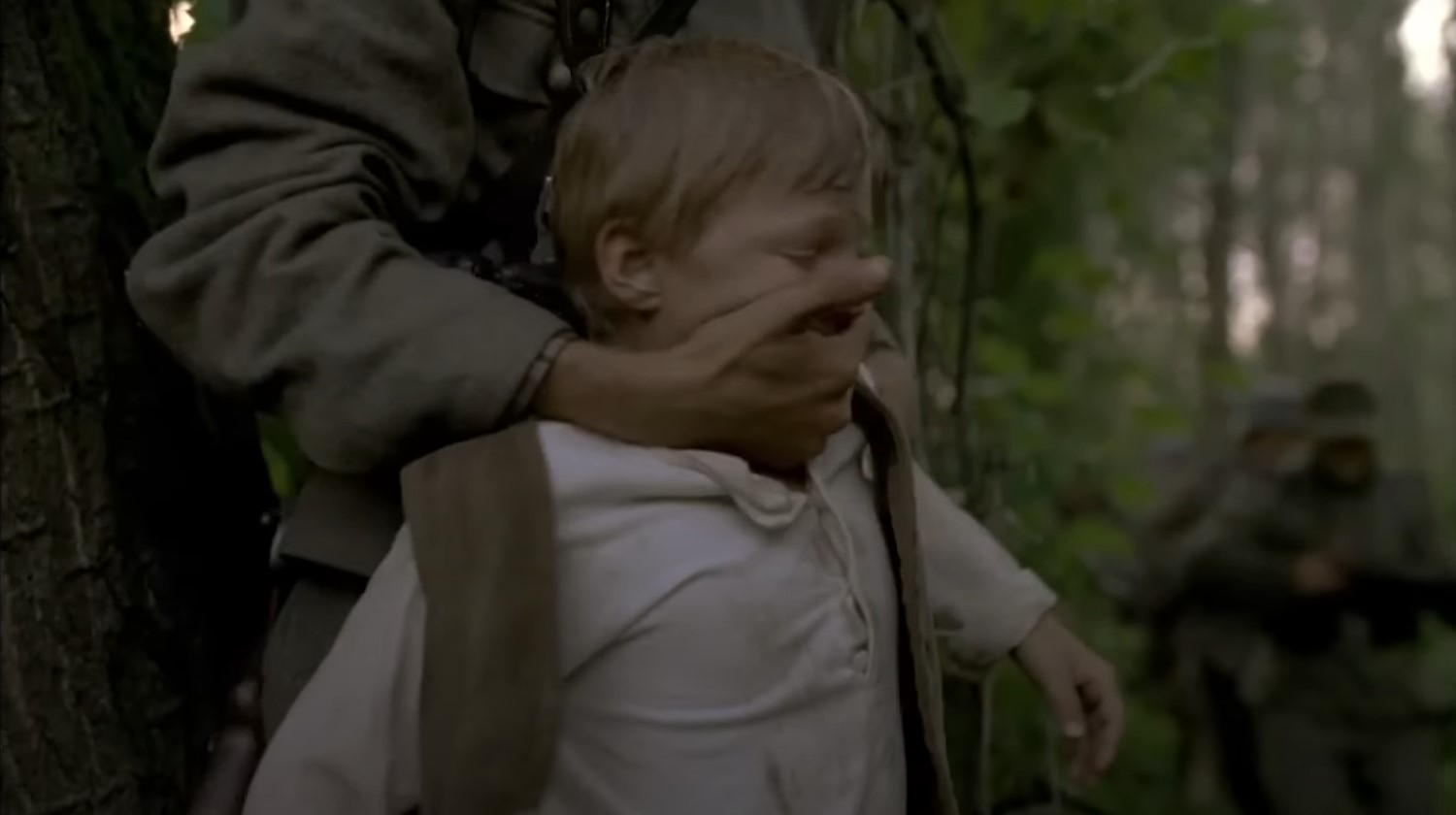The movie Son of Saul explores the implications of the protagonist Saul’s choices in the conflict between tradition, ethics, and universal morality. Saul’s actions are interpreted as a fierce struggle to preserve human dignity when personal beliefs and communal values clash, suggesting how national ethics can be extended to universal morality.
What justification does the act of sacrificing oneself for tradition and ethnicity have from a modern ethical perspective? Is it an anachronistic ideology indoctrinated by the ruling class of the past, or is it a universally applicable “good deed?” At least, one would not be able to look at Saul’s behavior and see it as a mere anachronism. Given the time and space in which the movie takes place, and the horrific realities that Saul experiences within it, his actions go beyond mere individual ethical decisions. It’s a fierce struggle for survival, desperation, and a sense of humanity that he refuses to lose in the face of the collapse of his community. It doesn’t matter if the child Saul was trying to bury with all his efforts was really the Son of Saul. Saul’s behavior is more like Satan, the unavoidable mind that Mencius spoke of in his theory of sexual selection.
So is Saul’s behavior formed from a good heart that is independent of everything else, and if so, where does that good heart come from? In the movie, Saul doesn’t just want to bury the child, he wants to bury him according to Jewish tradition. Saul’s behavior in this scene is more than just a moral act; it emphasizes the importance of tradition and culture. Tradition is not just a remnant of the past, but something that gives meaning and direction to those living in the present. For Saul, tradition is his reason to live, an expression of his commitment to his community. Even when he is swindled by a con artist, he strives to uphold his traditions as he sees fit, and the movie largely revolves around the pursuit of tradition and resistance to authority. The ethics of a shared community bound by ethnicity, even if not limited to the Jewish case, are authoritative and teach members of the community universal morals. Because my father and mother did it, my teacher did it, and my friends did it, the actions required of the ethnic community are justified, and the actions are internalized. It becomes right behavior.

The same is true of resistance to authority. Saul’s behavior is both a struggle for traditional memorialization and a resistance to dominant power. His struggle for the dead cannot be viewed simply as compassion for a child when he does not know when he himself will die. These actions are essentially a last stand for human dignity and a rebellion against power. Saul is a member of his community, and he wants to uphold its values and beliefs to the end. In an ethnic community, people of the same ethnicity are considered to be one family, and in a family community, family members are as valuable as or more valuable than themselves. The feeling is maximized when the person is designated with a special relationship as a child. Digging into the death of a desperate compatriot and mourning for him can be seen as a struggle to save oneself from the same situation, and in the process, those who resist inevitably clash with authority. He pursued his resistance until his last breath and never lost his Jewish pride.
What is left for those who have lost these traditions and ethics? In the story, there is a fake rabbi who violates the traditions and ethics of the community. There are no moral guidelines for a man who abandons tradition for fear of the violence of authority. For his own survival and security, he deceives others, violates ethics, and lives a life of wandering, belonging to nowhere until the end. Through these characters, the movie strongly warns of the moral void that arises when humans betray their beliefs and traditions. The story of the fake rabbi shows how disastrous the consequences can be when humans lose their roots and become disoriented. What is left of his life after death, which, according to the plot of the movie, should have been his death? There is nothing left of the life of a human being who lives a life without anything to believe in and follow. Even nihilists believe in the idea that life is nothing. A life without any beliefs and living for survival in the present is no different from the life of an animal.
When we look at the discourse of ethnic communities in the past, we are naturally reminded of their ethics of inter-ethnic hatred and exclusion. Does the ethics of an ethnic community only consider those who are part of it as objects of moral consideration? Sadly, the answer is most likely yes. In doing so, the film sheds light on the two sides of nationalism and warns of how the ethics of a particular ethnic group can be exclusive toward others, an issue that is still relevant today, suggesting the danger that ethnic identities and traditions can lead to exclusion or hatred of others. There are many ways to group a group of people into a community, and in the case of the Jews, it’s based on the idea of a common people. “Jewish ‘self-perception’ is summarized by the words ‘exclusivity’ and ‘distinctiveness,’” which best characterize Jewish national identity.
So how can we connect the use of ethnic communities to internalize ethics in a pluralistic and globalized world? One figure that comes to mind here is the Biedermanns. He doesn’t speak Hebrew, and he’s not Jewish. Yet he empathizes with their despair and supports them, even to the point of death. At a time when nationalist empires were spreading like wildfire around the world, his ethics must have come from the German ethnic community. This is where we can expect to see the ethics of ethnic communities expanded into universal morality. There are many interesting intersections between the stories of different communities and the ethics that resonate with them. Thou shalt not kill, be considerate of others, and save those in danger. Morals that are shaped or given by our survival and safety are incorporated into ethics. This suggests that specific ethics can be extended to universal morals.

The final scene of the movie ends with the two peoples united by a universal morality. In the end, the only thing that stands between the two peoples – Saul, who has lost his son, and the German, who shelters the boy until the Germans pass by – is the moral imperative to protect the child. Ethics and morality are in a constant state of change and expansion, reinterpreted and reconfigured to suit new times and circumstances. This final scene strongly suggests the possibility of human empathy and universal morality between the two peoples. Above all, it suggests the possibility of recognizing and mutually respecting the common moral values and dignity of human beings across ethnic boundaries.
In the end, Son of Saul emphasizes that while ethnicity and tradition are important, we must not lose sight of universal human values and morals. It offers a positive outlook that ethnic ethics and universal morality can be complementary and interconnected, providing a basis for cooperation and empathy with the larger human community. The film shows that these two concepts are not in conflict, but rather complement each other and are essential to building a better human society. The world is still far from moving away from nationalistic discourse, but there is hope that ethics can continue to evolve and expand as a universal morality, the film tells us.
 I’m a blog writer. I want to write articles that touch people’s hearts. I love Coca-Cola, coffee, reading and traveling. I hope you find happiness through my writing.
I’m a blog writer. I want to write articles that touch people’s hearts. I love Coca-Cola, coffee, reading and traveling. I hope you find happiness through my writing.